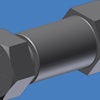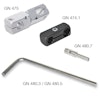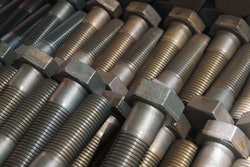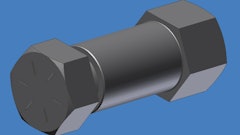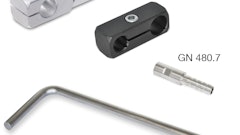Noticeable signs of a slowdown in economic growth are increasingly evident in the markets of industrialized countries. For Bossard, this gives rise to tougher market conditions in all three regions. As a consequence, the group saw a 3.2% drop in sales to CHF 218.7 million (-1.6% in local currency) in the second quarter. In the first half of the year, Bossard posted a 1.0% increase to CHF 450.9 million (+1.9 percent in local currency). Based on the current results, the EBIT margin for 2019 is expected to be at the lower end of the 10% to 13% target range. The global demand for Bossard’s Smart Factory Logistic solutions and its Engineering Services continues to be very positive.
The slowing economy plus the renewed strengthening of the Swiss franc are notably affecting business in Europe. In the second quarter, Bossard generated sales of CHF 125.9 million in this market, which is 1.9% less than in the previous year. In local currency, this represents an increase of 0.8%. For the first half of the year, European business posted growth of 1.7% to CHF 264.8 million and still a 4.2% increase in local currency. As already reported in April of this year, the overall demand picture is mixed. Some business units posted double-digit growth rates in the last few months, whereas others felt the effects of the weaker economic environment.
Following the pleasing business performance in 2017 and 2018, Bossard has been fighting headwinds in America in recent months. In the second quarter, net sales fell by 9.9% to CHF 55.3 million (-11.2% in local currency). In the first half of 2019, sales declined by 5.1% to CHF 113.4 million (-8.3% in local currency). One reason for this development is that a number of customer projects from the previous year have now been completed. In general, Bossard faced weaker demand from major customers, especially in the second quarter of 2019, in line with the overall trend reflected in the U.S. purchasing manager indices. The product mix of the largest U.S. electric vehicle manufacturer has markedly changed since the introduction of a third model series, adversely affecting sales.
In Asia, the groundwork of the past years continues to pay off. Although the effects of the trade dispute between the USA and China can be felt, Bossard continues to post a high growth in sales in important markets like China, India and Taiwan. In the second quarter, sales rose by 3.9% to CHF 37.5 million, a 7.1% increase in local currency. In the first half of 2019, sales increased by 9.7% to CHF 72.7 million (+12.0% in local currency).
For the first half of 2019, Bossard Group reports a net income of CHF 41.6 million (PY: CHF 49.0 million). The return on sales amounted to 9.2% (PY: 11.0 %). In addition to a record basis for comparison, the development of results was affected by the waning demand and the additional investments needed to expand the services portfolio in Smart Factory Logistics and Engineering. It is encouraging to note that the engineering modules introduced in spring have met with positive response and resulted in first successes, both with existing and new customers. The long-term and targeted investments in the expansion of services mean higher expenses in the initial phase, especially in the area of personnel costs.
Furthermore, Bossard is currently observing a rise in labor costs as a direct result of high employment in various industrialized countries.
The purchasing manager indices, which have been declining in recent months indicate that demand will likely be moderate also in the second half of the year. Against this backdrop, the EBIT margin for 2019 is expected to be at the lower end of the 10% to 13% target range.
Bossard will publish the detailed 2019 semi-annual report on August 22, 2019.

